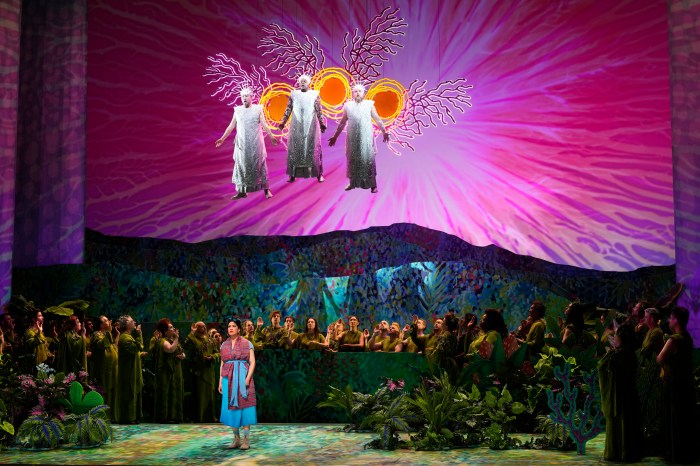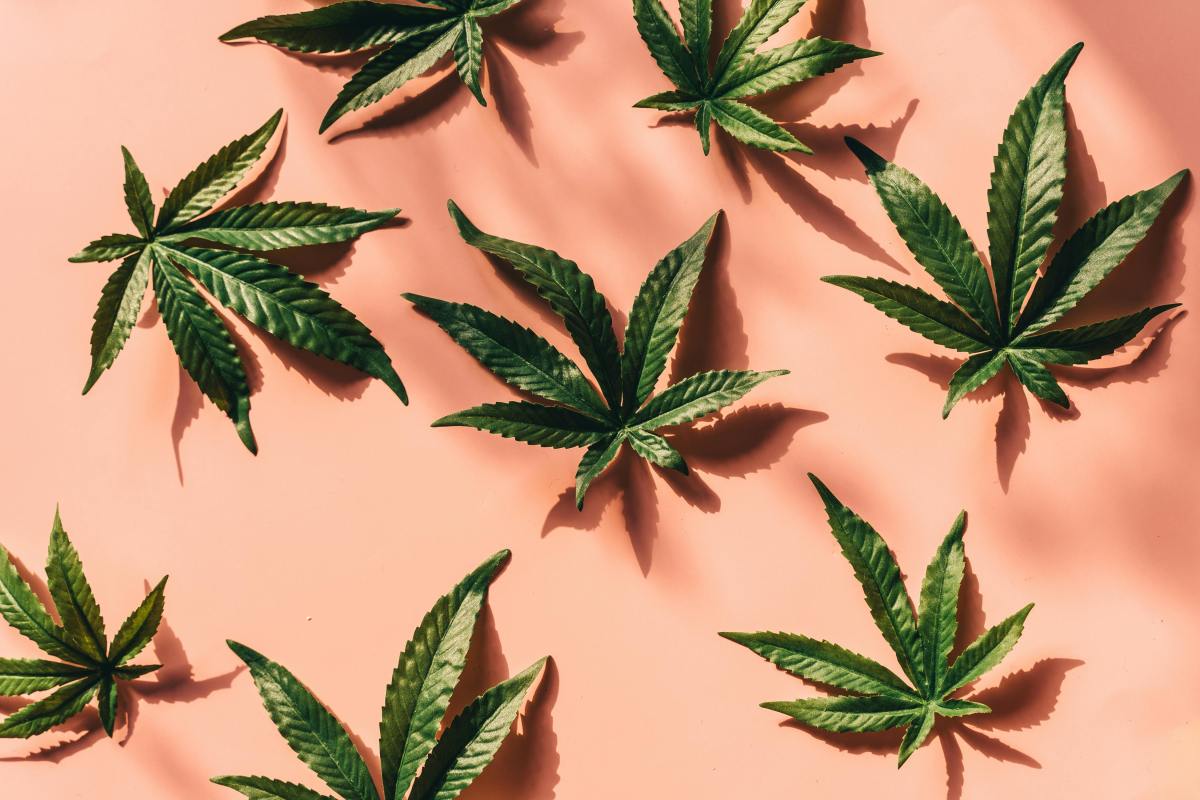
Amanda Palmer has had a thrilling past seven years. She gave a TED Talk in 2013 called “The Art of Asking,” which she then turned into a New York Times-bestselling book of the same name. She gave birth to her first child, and her openness about her life has helped a lot of people, as a perusal of the replies to her Twitter feed indicates.
Amanda Palmer has also had a bruising last seven years. She’s lost people to suicide, dealt with rough patches in her marriage, and watched her best friend die of cancer. She’s dealt with the everyday inequities of how the music industry treats men and women. She’s had a miscarriage.
“There Will Be No Intermission,” the 42-year-old’s latest album, tries to embody both of those truths, to reconcile life’s highs and lows. “A lot of this album,” she says, “is the marriage of those two sides of myself.”
We caught up with Palmer on her tour, which she said will only be coming around once per city (she plays three hours a night, onstage with only herself), to talk criticism, funding and performing tough material live.
You’ve mentioned in the past that your Patreon funders have changed the way you write. In what way?
I began using Patreon about four years ago. As far as I knew, it was just going to be this fantastic financial security system, because I’ve spent my life hustling as an indie artist and the idea of having an automatic check every month to support whatever work I felt like doing was pretty miraculous. And that has been, but what I did not anticipate was that the financial and emotional safety net of having a bunch of people unconditionally supporting my voice has made me infinitely braver as a songwriter. I didn’t really see that one coming, and I didn’t really notice it while it was happening, but in retrospect I look back at my earlier work, and my relationship with major labels, and my relationship with the music media and what I was able to do and create with Kickstarter — but I still had to really go out and hustle and sell that last record. This record had no bounds, because it was presold to 15,000 people and I was able to take emotional and musical risks that I’m not sure I would have taken if I had had to stick this album in a portfolio and march it up to Steve and Dave in marketing. Especially being a woman and writing about abortion and miscarriage, with these really noncommercial songs that run up to 10 and 11 minutes, it was almost that I realized that I had a lot of Kool-Aid still swirling around in my body from the old days about what art had to sound look and be like in order to be sale-able. That really liberated me in a way that I didn’t know I needed liberating.
This album deals with some pretty heavy topics. What has that meant for the live show?
It makes the concerts pretty extraordinary, because I’m not getting up there and posing as an enigmatic rock star. I’m getting up there and really opening myself up and spilling the truth, while trying really hard not to leave the audience in a dark place. That’s a good challenge for me. I’m used to playing a show that’s pretty entertaining, pretty wild, pretty funny, with a few handfuls of the dark thrown in there for balance. This particular show is like a 10-course meal of sorrow and joy. And it’s exhausting. These are all skills I didn’t [expletive] have 15 years ago, or 10 years ago, or even five years ago. And in the time of Trump and Pence, to be able to get on stage all over this country and talk to tens of thousands of people about what it’s like to go get an abortion? Even if a few people feel disconcerted? I absolutely feel like that’s our most powerful political weapon right now, just talking about what it’s like and how it feels.
Your work is sometimes met with backlash online, due to its content or for personal reasons. How have you dealt with that?
I have learned how to guard against that by making myself as vulnerable as possible. … I care less and less about impressing people and less and less about concerting people, because the older I get the more I realize that many of the folks feeling disconcerted need to feel disconcerted. And I used to use the truth more as a very blunt hammer, and nowadays I feel like I’m using it more like a surgical knife — I understand so much more than I used to about how to connect using words with my community and especially having gone through what I’ve gone through in the last seven years — abortions, birth, a miscarriage, suicides of lovers, the death of my best friend, and also having done a TED talk and having written my book. I’ve gotten such an incredible taste of what it’s like to actually be able to help people. And I don’t want to separate Amanda Palmer, the person who can give a motivational speech about art and write a self-help book, from Amanda Palmer, the person who can sit down and write songs about pain.
Where did the title for the new album originate?
The title was actually inspired by a girl from the back of the house during my sort-of rough draft shows in the U.K., which were running into three or three-and-a-half hours, with no intermission. And the girl shouted that she had to pee. We took a spontaneous intermission, which of course completely freaked out the theater and was very funny. … But it struck me as such a perfect poetic metaphor for the nature of the record and the story of the last seven years. You do not get to take an intermission from life. It’s relentless. And just when you think you’ve recovered from the last storm, there’s another one not only on the horizon, but besetting you as you speak.
Amanda Palmer Saturday 7:30 p.m. | Beacon Theatre, 2124 Broadway, msg.com, $35-$60.

















